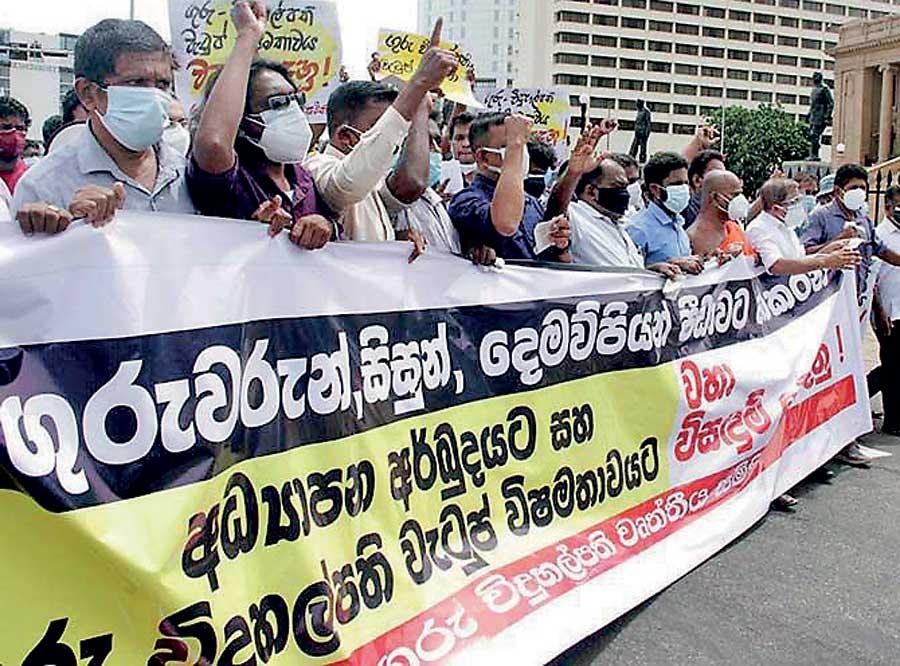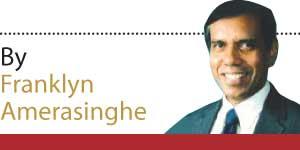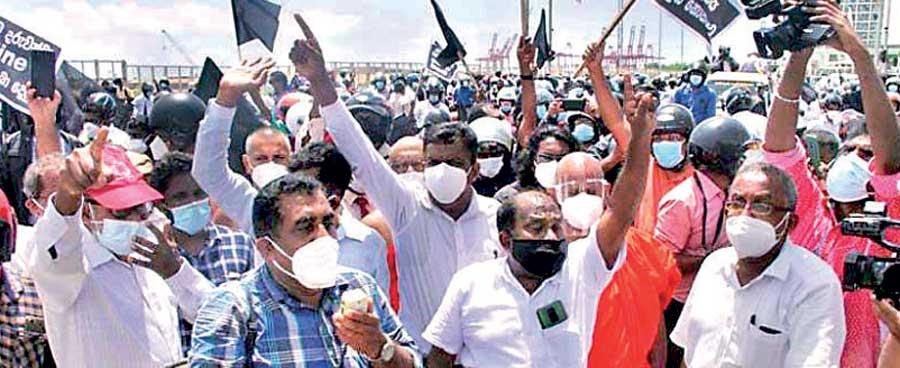Reply To:
Name - Reply Comment

I have been greatly troubled by the current Covid situation like everyone else, not merely because of the disruption of the economy and our way of life, but also because of the set back to the education system and the aspirations of our children, who are our human capital for the future. Every country responded by organizing virtual classes, but to make such a system work you need the fullest co-operation, as well as relevant skills, on the part of the staff of each school. Since the smaller schools would naturally have fewer facilities, and the children also do not have much access to reliable means of connecting with the inter-net, there were always challenges which the government does not seem to have adequately addressed.
our children, who are our human capital for the future. Every country responded by organizing virtual classes, but to make such a system work you need the fullest co-operation, as well as relevant skills, on the part of the staff of each school. Since the smaller schools would naturally have fewer facilities, and the children also do not have much access to reliable means of connecting with the inter-net, there were always challenges which the government does not seem to have adequately addressed.
However, now the government has a new challenge which is more serious. The teachers of the government schools are on strike. But what is farcical and inexplicable is that the teachers are nevertheless being paid. A cardinal principle of a strike as confirmed by the Committee of experts of the ILO is that strikers are not paid. I spoke to a senior trade unionist that is active in the dispute and he had a good laugh at how the government has handled the situation by not putting the teachers under pressure to be sensible, by withdrawing their salary payments. However, I see another aspect to this issue. The government seems to be agreeing that the teachers are due for an increase but cannot afford it, or cannot give it without pressures from other sectors to enhance their salaries also. A mess which has been caused by political interventions on the side of their affiliated unions in the past or the mere fact that certain unions like those in the medical services can hold a gun to the heads of the decision makers and get results. State education is not such an important issue for the politician who seems oblivious to the importance of a good education system to the development of the country? Let me ask the MP’s as to how many of them send their children to government schools or the state universities? The fact that they do not trust the system which they control shows that their interests are not in line with national economic development but more attuned to giving their children opportunities elsewhere. For them if the free education system is failing, it is not their concern?
" If one examines teachers’ salaries in the context of their being vested with the responsibility for producing the future professionals and the technicians of tomorrow, to carry the country forward, how much do they deserve to be paid?"
What caused the mess? I have examined a study done by the ILO in 1971, and the sad thing is that we commission studies but for political exigencies, or political reality, they discard these studies. The ILO study by Prof. Martin Segal, of the US on “Government Pay Policies in Ceylon” shows that there was serious consideration paid to assessing the functional responsibilities of employees in pay structures up to about 1967 and attention was paid to job classifications. It is pointed out that economic factors were also taken into consideration but the value of a job was a guiding principle for an appropriate salary grading. The recommendations for a wage policy which was development oriented needed two characteristics:
1. “With respect to any general wage changes, it would have to take into account the need to limit consumption expenditures and to release resources for the purpose of investment.
2. It would seek to establish a structure of occupational wage and salary differentials that would facilitate and increase the supply of skill needed in the developing economy.”
The first recommendation concerns proper economic management and I am not competent to comment on this. However, with regard to the second recommendation, the need to have a structure of occupational wage and salary differentials is the important point for us to address from an industrial relations point of view. Having processes which are transparent and which will not be tampered with in an ad hoc manner to suit political will, inevitably leads to strike action, or at least de-motivation of employees which are as vicious a malady. The study shows that there were in 1967, 61 job classifications and to a large extent the government has been guided by the need to tie salary differentials to functional responsibilities as well as skills which were needed. I believe there is still a Salaries and Cadres Commission which periodically assesses these differentials in a scientific manner.
The government should take its hands off education as well other public services and rely on periodical studies which decide on across the board adjustments. There is a process I remember for appeals to be made and these should be heard and decisions taken by the Commissions Appellate process as final and conclusive, as happens under an arbitration award under the Industrial Disputes Act. In fact I was commissioned some years ago by the ILO to produce a dispute settlement procedure for the public service and in consultation with unions of all political affiliations as well as heads of departments, we formulated a scheme which also recommended bringing public servants also under the coverage of the Industrial Disputes Act so that a dispute could be referred to an Industrial Court. A Cabinet paper was also submitted, but I believe although the then Ministers of Public Administration and Labour endorsed the move, and a Bill was drafted it was shot down by certain elements in that Cabinet who are now in the current Cabinet. The bottom line of their argument was that it took away their right to make arbitrary decisions!
"The government has a new challenge which is more serious. The teachers of the government schools are on strike. But what is farcical and inexplicable is that the teachers are nevertheless being paid. A cardinal principle of a strike as confirmed by the Committee of experts of the ILO is that strikers are not paid"
Let me express my sympathy with the teachers who I sincerely believe deserve higher pay commensurate with their task to produce better leaders and skills for the country. They have ended up having to be on strike, which is deplored by all parents. Some of them see the strike as a ridiculous opportunity for the teachers to make money on tuition classes. They are also being paid their salaries in addition whilst the students are left to their own devices (which in most cases do not cover electronic devices)!
If one examines teachers’ salaries in the context of their being vested with the responsibility for producing the future professionals and the technicians of tomorrow, to carry the country forward, how much do they deserve to be paid? A sports coach in a school is paid ten times more than a Principal? Teachers must be paid well and not interfered with by politicians. Teachers are more important in a sensible society than politicians. The fact that many politicians have no educational qualifications may also be part of the problem?
How do you stop the strike? I would encourage the government to refrain from a political decision but to weigh the importance of the teacher in relation to the poor disadvantaged child and what would motivate the teachers to see his/her job as being one of great value to society and the economy. A proper assessment of their value should be made urgently and anomalies across the board should be eliminated on a scientific basis through the Salaries and Cadres Commission which should be independent and maybe the answer is to create the possibility of an Industrial Court such as under the Industrial Disputes Act to make a binding order on the merits.
The author was commissioned by the ILO and Government to make proposals for a Dispute Settlement Process in the Public Sector a few years ago. He has served on many Wages Boards and was at one time a Presidential Adviser on HR to the Banking Sector. He also worked for the ILO and the EFC.
